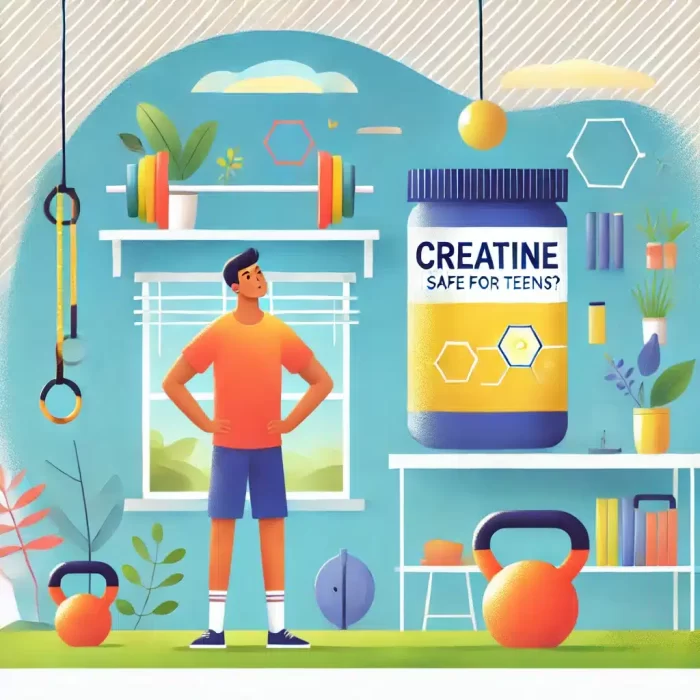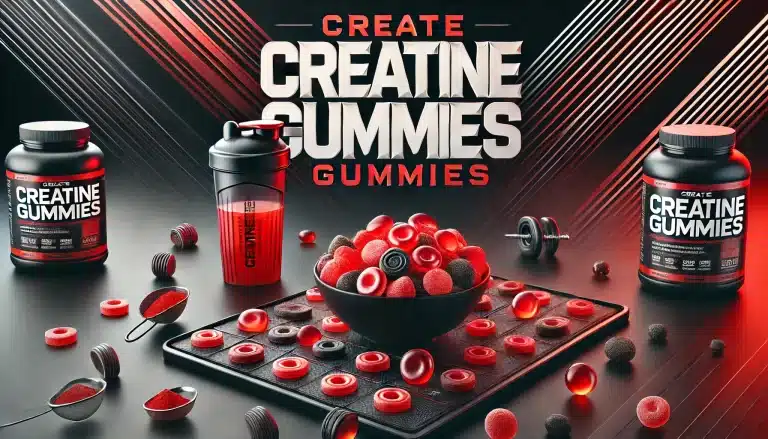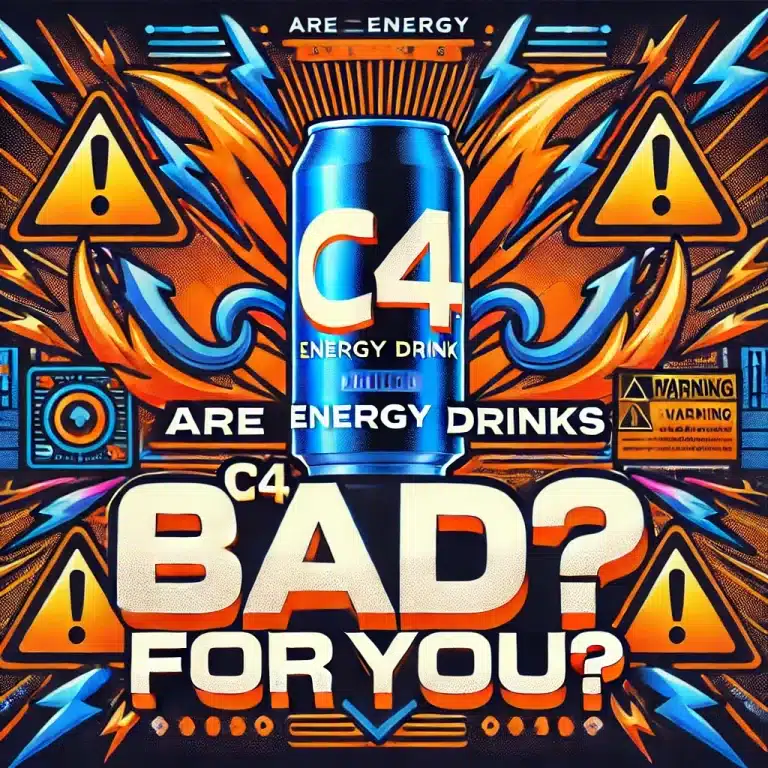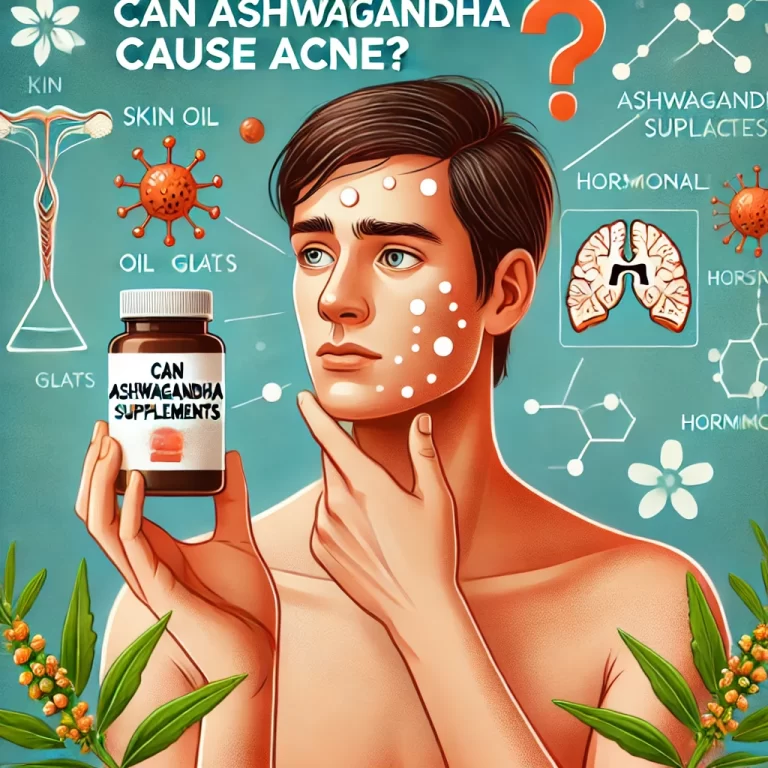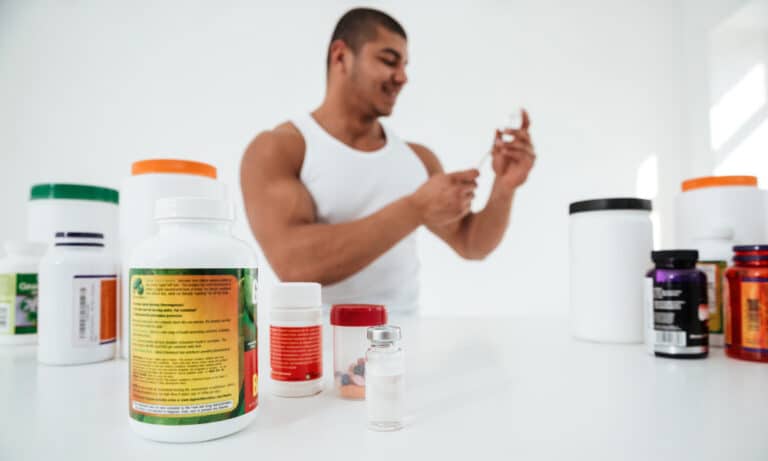Is Creatine Safe for Teens? A Registered Dietitian Explains
A few months ago, after practice, a high school wrestler called Damien drew his coach aside. He was in pain, annoyed, and not experiencing the desired benefits. The man never skipped leg day, trained five days a week, and was spoonful-wise consuming peanut butter. But he continued to be pinned by someone ten pounds bigger and exactly as fast. For weeks, Damien had a question flying through his head; at last, he inquired, “Coach, should I be using creatine?”
That’s a quite important question that is becoming more and more prevalent daily. More and more teenagers, from wrestlers to football athletes to sprinters to gym rats, are looking to creatine as the secret weapon to level off their game. This makes sense easily. Strength, faster recovery, larger muscles—promise here? Tempting material for you wanting to establish yourself.
Benevolent curiosity notwithstanding, there is also uncertainty. Teenagers lack a lot of clarity, so Parents are dubious. Coach caution is something we know. Online pieces alternate between “absolutely yes” and “absolutely never.” Where therefore does the truth sit?
Allow us to break it out. No tricks. Not any scare strategies. Just a solid, no-BS analysis of whether creatine is wise—and safe—for young people.
The Elephant in the Weight Room:
Let us be sincere here. Pressure begins to seep in the instant a teen enters a gym or onto a varsity schedule. You start doing the calculations when you see the guy two years older with twenty pounds of lean bulk and a jawline reminiscent of a comic book character. “If I eat right, work hard enough, and maybe take something… could I get there?”
Some teenagers prioritize keeping up more than simply appearances. Sporting events have become quite fierce. Young athletes are being watched by scouts, even younger. Everybody is running after an edge; creatine promises one.
The truth is, that pressure is real. And the choice to utilize a supplement like creatine is more about attitude than only science. It’s about choosing a body still learning itself.
We have to start from there. We have to first consider what is driving the inquiry before asking whether creatine is safe for teenagers.
What Does the Research Say About Teens and Creatine?
Although adults have been well-studied on creatine, studies on its use in teenagers are somewhat scant. Still, the research that is at hand offers some insightful analysis:
- Safety in Healthy Individuals: Based on several short research and clinical trials, creatine supplementation is usually safe for healthy people—including teenagers taken sensibly. The secret is a correct dosage under the direction of a dietician or healthcare practitioner.
- Research shows, that even in teenage athletes, creatine can improve strength, speed, and recovery in performance. For teenagers engaged in competitive sports, this can be a benefit when coupled with appropriate diet and exercise.
- Long-Term Effects: There is a dearth of long-term research on teen creatine use. Data from adult populations and short-term trials in teenagers, however, demonstrate no appreciable negative effects when creatine is taken as recommended. This dearth of long-term study emphasizes the need for careful use.
Every teen’s body is different, as a nutritionist would stress. The way supplements like creatine are digested and used depends much on factors including growth stage, exercise level, and general diet.
A very active young athlete with a set training schedule, for instance, would gain more from creatine than a sedentary one. Furthermore, teenagers’ dietary demands are already higher during growth spurts, hence it is even more important to guarantee a balanced diet before starting supplements.
The psychological component should also be known to parents and teenagers: supplements such as creatine should never replace basic behaviors including eating a balanced meal, keeping hydrated, and getting enough sleep. If an adolescent feels they “need” creatine to perform effectively, it could indicate deficiencies in their training or dietary plans that demand urgent attention.
The Water Weight Worry (and Other Side Effects)
Many of the “risks” connected with creatine are related to ignorance. Let us straighten a few things.
Start with the infamous water weight. Indeed, creatine raises muscle intracellular water content. That implies, particularly in the arms, shoulders, and quadriceps, you may first seem a little puffier. That is hydration, not fat though. Your muscles are drinking extra water to enable their optimal performance.
Second, bloating. Some teenagers, particularly in the early days, claim a minor bloat. Usually, this passes over a few weeks. Not mega-dosing and proper water help prevent it.
Third, muscular cramps. Users occasionally report tightness or muscular cramping. Again, here hydration is quite vital. Since creatine draws water into the muscles, your body may feel weird if you’re not getting enough.
Fourth, dyspnea in digestion. This is more typical with low-quality creatine supplements with extraneous fillers. Most people avoid this; stick to pure creatine monohydrates from a reputable source.
These side effects then are potentially dangerous? not quite. Complicating, perhaps. Still, often modest and fleeting. And most of the time, with careful application, totally avoidable.
Is Creatine Safe for Teens?
There is no evidence to indicate that, taken sensibly, creatine is intrinsically dangerous for physically active teenagers. Still, one should take some consideration for a few things:
- Before thinking about any supplements, teenagers should be quite knowledgeable about appropriate diet and exercise. This guarantees their ability to make wise decisions and combine creatine with other components of a healthy and fit lifestyle.
- Medical Conditions: Creatine might not be safe for teenagers with other health difficulties or pre-existing kidney problems. Before beginning creatine, always see a doctor to evaluate any underlying diseases that can raise hazards.
- Following the advised dose is vital. Overindulging in the usual 3-5 grams daily can cause the kidneys or digestive system undue stress. Safety depends on youth learning correct dosages.
- Purity: Unlike drugs, the supplement business is not under as close control. It is essential to guarantee the creatine product is devoid of dangerous additions or impurities and third-party testing. Teens and parents should search for respectable companies to prevent compromised safety.
- Dedication to Core Practices: Adding creatine should only come once one has mastered fundamental nutrition and training concepts. Teenagers should, for instance, already have a diet high in nutrient-dense foods that complement their degree of activity and should have ideal sleeping and drinking patterns.
I counsel qualified dietitians to start with holistic wellness first. Teenagers require a basis of healthy nutrition to benefit from any supplementation; proper dietary patterns cannot be replaced by anything else. Parents also play a critical part in keeping an eye on their teen’s supplement intake and making sure it complements their general health goals.
Benefits of Creatine for Teens:
Creatine could be helpful for teenagers engaged in high-intensity training or competitive sports in numerous ways:
- Creatine increases the synthesis of ATP, which feeds sprints, leaps, and weightlifting—high-intensity, short-duration exercises. Athletes that have better energy availability can train more aggressively and execute better.
- Regular supplements together with resistance training might help to produce more muscle size and strength increases. This can notably help in adolescence when muscular development is occurring organically.
- Faster Recovery: Creatine has been demonstrated to lower muscle cell damage and inflammation following intensive exercise, so enabling more frequent, effective training sessions.
- Drawing water into muscle cells helps creatine support appropriate hydration, therefore enhancing muscle performance and lowering the risk of cramps during physical exercise.
- Emerging studies point to creatine possibly supporting brain function, especially in cases of sleep deprivation or during mentally taxing activities. For teenagers juggling academics with athletics, this could be a bonus.
One should be aware that everyone uses creatine differently and has different results. While some teenagers could notice little advantages, others could see notable ones. How well creatine works for a given individual depends on their genes, degree of training intensity, and general nutrition.
Guidelines for Teen Creatine Use:
If a teen is considering creatine, here are some essential guidelines to follow:
- See a qualified dietitian, physician, or sports nutritionist before beginning. These professionals can evaluate the teen’s particular health profile, degree of exercise, and goals to guarantee suitable use of creatine.
- Before adding supplements, teenagers should concentrate on a firm basis of diet, training, and recovery. The first concern should be a well-balanced diet high in protein, carbs, good fats, and vital minerals and vitamins.
- Some protocols advise beginning with a loading phase (20 grams daily split into 4 doses for 5–7 days) to saturate muscles with creatine. This optional phase might not be required of every teen. A 3–5 gram daily maintenance dose is plenty following the loading period.
- Use High-Quality Supplements: To confirm its safety and quality, make sure the product is labeled as pure creatine and carbohydrate and has been evaluated by outside companies like NSF International or Informed Choice.
- Creatine helps muscles retain water, hence teenagers should drink enough water all day to remain hydrated and prevent possible adverse effects such as muscular cramps or dehydration.
- Track performance in sports, rehabilitation, and any possible adverse effects. Should any negative side effects, including unusual tiredness or stomach trouble, stop using and see a healthcare provider.
- Steer clear of stacking supplements since many pre-workout and performance-enhancing drugs include creatine along with other components. Combining supplements can make it more difficult to identify the cause of a problem or raise side effect likelihood.
- Teach teenagers that creatine is not a shortcut to success so they have reasonable expectations. Although it’s a tool to help them, effective outcomes depend on constant training, a balanced diet, and appropriate recovery.
Potential Risks and Side Effects:
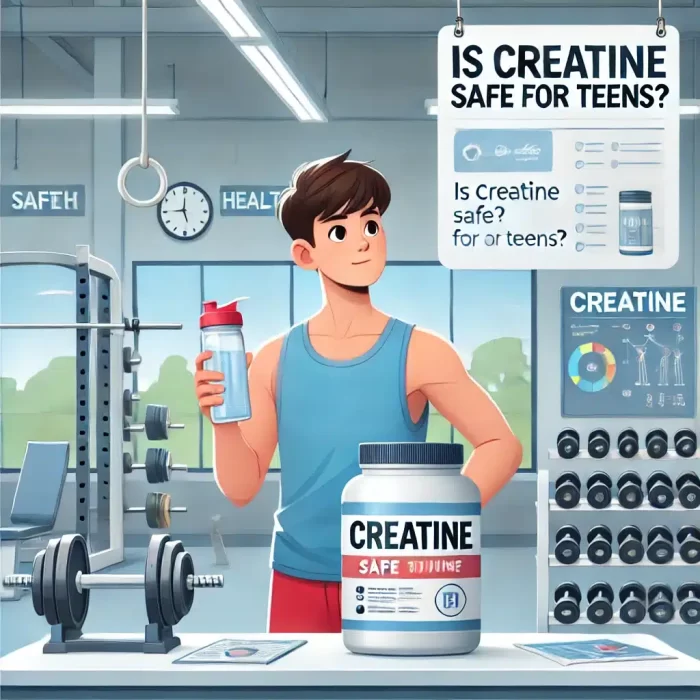
Although creatine is usually safe, teens should be especially careful of possible negative effects:
- Creatine draws water into muscle cells, therefore augmenting the demands for hydration. Teenagers who don’t drink enough water could become dehydrated, which would cause muscle cramps, dizziness, or tiredness.
- Some users, particularly when on higher dosages or during the loading phase, report stomach pain, diarrhea, or nausea. Oftentimes, following the advised dosage helps to minimize these problems.
- Because of water retention in the muscles, creatine supplementation might cause body weight to rise. Athletes in weight-sensitive sports should be mindful of this effect even though this is not fat gain.
- Although rare, some users of creatine report muscle cramps brought on by either inadequate hydration or electrolyte imbalance. Eating a balanced diet and keeping hydrated help to avoid this.
- Kidney Concerns: While creatine is safe for those in good health, those with pre-existing kidney diseases should either avoid it or see a doctor before usage. Should supplementation be long-term, regular renal function monitoring is advised.
- Potential Overuse of Low-Quality Products: Unreliable suppliers of supplements could include harmful extra components or contaminants. Select always third-party tested products.
- Emphasizing the requirement of a comprehensive approach to health and performance, depending mostly on creatine without keeping good nutrition, sleep, and exercise habits may cause frustration or unmet goals.
Teenagers and their parents may make wise judgments about creatine use and aggressively handle any hazards by being aware of these possible adverse effects.
What About Long-Term Health? The Kidney Myth
Particularly from parents, one of the most often expressed worries regarding creatine is related to renal health. Creatine developed a reputation as a kidney-damaging agent some distance along the road.
The truth is, though, that there is no convincing data showing creatine damages the kidneys in healthy people.
Research after research over decades has proven that in those without pre-existing issues, creatine supplementation does not affect kidney function. Although blood indicators seem raised, damage is not always indicated by this. It is more about how the body uses creatine than it is about any indication of damage.
Having said that, should an adolescent have any underlying illness compromising the kidneys or liver or a family history of kidney problems? Still, creatine is a topic of discussion for a doctor. Not the supply stores for supplements.
Ultimately, the kidney issue is not supported by strong data for healthy teenagers who use creatine properly and keep hydrated. Still important, though, are monitoring and oversight.
Teens and Body Image: The Unspoken Layer
There is not enough discussion of this one.
Many teenagers who wish to use creatine are not only driven by improved performance. They are running after assurance. They want to seem more defined, stronger, more “worthy.” Images of perfect bodies abound on social media, showing ripped abs at sixteen and bulging arms at seventeen. It generates a slow yet fast-growing quiet pressure.
One could consider creatine as a short fix. Something that helps you get from where you are to where you believe you should be.
But with that kind of thinking? It can get poisonous. Rarely do supplements taken from a state of insecurity have good results. They start to function as crutches. And irritation results when the outcomes fail to show up quickly enough.
Teenagers should so ask themselves before using creatine: Am I doing this because I want to perform better? Alternatively, since I detest my appearance.
That difference counts more than you might believe.
Smart Creatine Use: If You’re Gonna Do It, Do It Right
Should a teenage athlete use creatine seriously, here’s how to approach it sensibly:
- start small: Enough is three to five grams daily. Not necessary to load with twenty grams.
- Use pure monohydrates; avoid the “extreme,” tastes, and mixtures.
- Stay hydrated—not only with the supplement—drink water all day.
- Take it regularly; creatine is most effective over time rather than once only.
- Monitor your feelings. If you have changes in digestion, cramping, or mood—stop and review.
- Loop through a mentor. a doctor; a father; a coach. Someone you could use for direction.
Remember too that creatine is not a pre-workout. You are not supposed to experience “kick-in.” It accumulates in your system piecemeal. Give it not days but weeks.
What Coaches and Parents Should Know
If you’re guiding a teen who’s asking about creatine, your first instinct might be to say “no.” But the better path is to say, “Let’s talk.”
Supplements aren’t going away. Teens are going to hear about creatine whether adults talk to them or not. So the goal isn’t control—it’s education.
Help them ask the right questions:
- Why do I want this?
- What am I hoping it’ll do?
- What am I already doing to support my body?
If the answers are solid, creatine might be a reasonable next step. If not, it’s a chance to redirect toward food, training, and recovery—the real game changers.
Frequently Asked Questions (FAQs):
Can a teenager take creatine safely?
Indeed, when taken sensibly, teenagers can safely benefit from creatine. Before beginning supplements, see a healthcare professional or qualified dietician. Key include good hydration, following advised dosages, and using premium products.
Does creatine stunt growth in teens?
There is no evidence to suggest that creatine stunts growth in teenagers. Creatine is naturally found in the body and, when used responsibly, does not interfere with normal growth or development.
At what age can teens start taking creatine?
There is no definitive age recommendation for starting creatine, but it is typically considered safe for physically active teens aged 16 and above who are engaged in structured athletic training programs. Younger teens should prioritize nutrition and training before considering supplements.
Do teens need a loading phase for creatine?
Not required of all users, a loading period is optional. Starting with 20 grams daily divided into 4 doses for 5–7 days will help certain teenagers saturate muscles with creatine; then, a maintenance dose of 3–5 grams daily will assist them.
Are there natural alternatives to creatine?
Indeed, natural substitutes consist of eating foods high in proteins, keeping a balanced diet, and emphasizing recovery strategies including hydration and sleep. These techniques support athletic performance without resorting to supplements.
What should parents watch for if their teen is taking creatine?
Parents should check their teen’s hydration, make sure the dosage is correct, and look for any possible side effects such as unusual tiredness or stomach trouble. The key is to keep open contact with a healthcare provider and use third-party tested items.
Alternatives to Creatine:
If you’re dubious about creatine, there are natural ways to improve athletic ability:
- Foods high in proteins include chicken, eggs, fish, beans, and dairy products; these provide the building blocks for muscular development and repair. Enough proteins guarantee teens naturally reach their performance and recuperation targets.
- The main source of energy in the body is carbohydrates for which Meal inclusion of healthy grains, fruits, and vegetables enhances post-exercise recovery and helps maintain energy levels during exercises.
- Healthy Fats: Active teenagers especially need hormones, which are produced in part by avocados, nuts, seeds, and olive oil, which also help with total energy needs.
- Staying hydrated with water and electrolytes guarantees ideal muscular performance and lowers the danger of cramps or tiredness during exercise; here is how much water should you drink with creatine.
- Sleep and Recovery: Though it’s often disregarded, rest is vital for athletic performance. Enough sleep lowers the chance of injury, enhances focus, and helps muscles heal.
- Foods high in nitrates, such as beets, and tart cherries, anti-inflammatory agents, have shown potential in naturally improving endurance and recovery.
- Without supplements, a well-organized strength training program catered to the teen’s sport and goals can have major performance advantages.
Teens can reach their sports goals without depending on supplements by concentrating on these natural approaches. A comprehensive strategy guarantees they acquire sustainable practices encouraging long-term performance and health.
Conclusion:
Allow us to land the plane.
Is teen use of creatine safe?
Generally speaking, yes—when taken sensibly in healthy people alongside good behaviors.
It is not a steroid. Not harmful in and of itself. One of the most researched sports supplements available worldwide, its safety record is rather clear.
Safety, then, is more about the context than it is about the content.
Should a teen be:
- Eating enough to aid in development
- Smart and consistent training is key.
- Resting and healing effectively
- Mentally rooted in the reasons they are augmenting
- Using a pure good at the right dose
- Being honest with physicians, coaches, or parents.
Then sure—creatine can join the trip.
But if they’re missing meals, sleeping four hours a night, online approval hunting, and expecting creatine will fix everything?
Not the time then is it? Not yet.
Every teen has time to develop naturally. To get the foundations under perfect control. In order to lay a foundation. Creatine is a bonus chapter down the road; it is not the beginning of the story.
So consider whether now is the appropriate moment before scooping that powder. For what justifiable reasons am I doing this?
If the response is yes, you will most likely be good.
